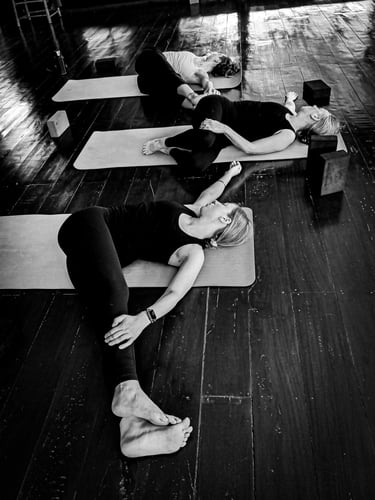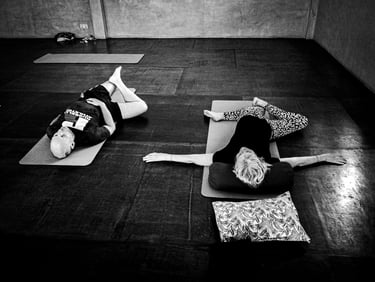Relief from Poor Sleep
Lethargy
This sense of sluggishness is a direct result of the body and brain not getting enough time to rest and repair. During sleep, our cells regenerate and systems reset. Without this, we’re left feeling physically depleted and mentally unmotivated.
Irritability and Emotional Sensitivity
Sleep is essential for emotional regulation. When deprived, key neurotransmitters involved in mood balance - such as serotonin and dopamine - can become imbalanced. This can heighten frustration, lower patience, and cause even minor challenges to feel overwhelming.
Stiffness
Good sleep includes micro-movements that help keep joints mobile and muscles supple. When sleep is disturbed, those natural shifts are reduced. Combined with possible dehydration and increased inflammation, we may wake up feeling physically tight or achy, especially around the hips, shoulders, and spine.
A poor night's sleep can trigger a cascade of unpleasant physical and emotional effects. It’s not just about feeling tired - it’s about how deeply sleep loss affects our body’s ability to function, regulate emotions, and move with ease.
We may experience any one - or a combination - of the following:
Back Discomfort
Poor sleep and back pain often go hand in hand. Here’s how they interact:
Increased Muscle Tension: Anxiety and stress from poor sleep can cause the back muscles to tighten.
Inflammation: Sleep loss can heighten inflammation, leading to localised pain or stiffness.
Postural Strain: When we’re tired, our posture often suffers. Slouching or collapsing into chairs can place strain on the back.
Reduced Pain Tolerance: Sleep deprivation lowers our threshold for pain, making discomfort feel more intense.
Delayed Recovery: If there’s an existing injury, poor sleep slows the healing process - prolonging recovery.
Unfortunately, it’s a vicious cycle: back pain can disrupt sleep, which in turn worsens the pain.




What Can Help?
A gentle yoga sequence the next morning can provide much-needed relief.
Mindful movements help mobilise stiff joints, release muscular tension, and offer the nervous system a sense of safety. This, in turn, can uplift energy levels and improve mood - even after a challenging night.
More Insights
